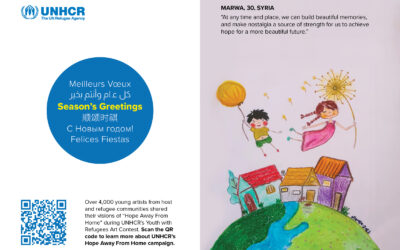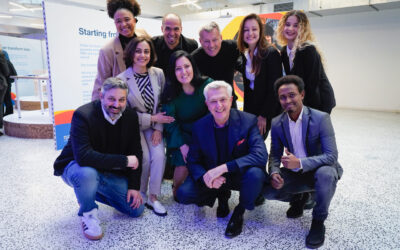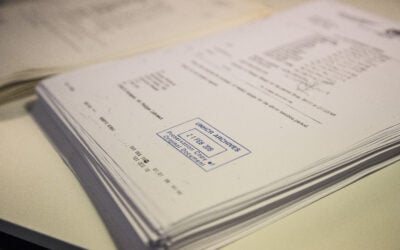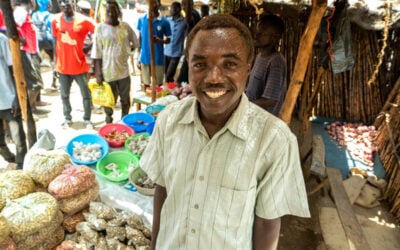Our Latest Articles
Digital humanitarians: the ITHACA project
By Heather Faulkner “When you depart for Ithaca, may your road be a long one, full of adventure and full of knowledge.” The opening lines of Constantine P. Cavafy’s 1911 poem, “Ithaca”, have served as inspiration to the 11 partner institutions,1 working together since...
The Microdata Library in 2024: Expanding Access to Data While Strengthening Privacy Protections
By Andrea Pellandra and Alejandra Moreno Ramirez A group of Venezuelan men and women waits for a canoe to take them from Bajo Chiquito to Lajas Blancas. ©UNHCR/Ilaria Rapido Ragozzino Expanding the Microdata Library In 2024, UNHCR reinforced its commitment...
UNHCR and OECD Datathon: Harnessing Data for Forcibly Displaced and Stateless Children
By Tarek Abou Chabake and Jean-Christophe Dumont Hands of children at Tierra Bomba School, an ethno-educational institution with 1,188 students. ©UNHCR/Santiago Escobar-Jaramillo Data plays a crucial role in humanitarian efforts, providing timely and accurate insights...
Seasonal Greetings Across Time: Messages from UNHCR’s Archives
By: Motahareh Mohebi “This is the season for exchanging greetings.” While it is a common practice among organizations, companies, and institutions to send greetings to their colleagues at this time of year—and UNHCR is no exception—some of UNHCR's past greetings, now...
We’re Better Together: the private sector is stepping up for refugee inclusion
By Shirin Pakfar, Chief of Private Partnerships and Philanthropy at UNHCRHigh Commissioner Filippo Grandi meets with Jesper Brodin, CEO of Ingka Group; Tolga Öncü, Ingka Retail Manager; and IKEA co-workers with refugee backgrounds. © Ingka GroupWhen people think about...
East, Horn, and Great Lakes of Africa: Leveraging Data for Sustainable Refugee Responses
By Jed Fix, Masud Rahman, Dr. Atinkut Mezgebu Wubneh, and Alessandro Nava Noor Ibrahim Isak, 67 harvests Sesame with his son, Hussein Noor Ibrahim, 15, at Kobe agricultural farm for the refugees and the host community in Kobe, Somali region of Ethiopia. ©UNHCR/Tiksa...
Powering UNHCR’s work with solar energy in Mauritania and Nigeria
By Laura Argibay, UNHCR Associate Communications Officer and Anett Varga, UNHCR Associate Programme Officer. Aerial view of rooftop solar panels at UNHCR's Office in Ogoja, Nigeria. © UNHCR/Owoche Igwue UNHCR, the UN Refugee Agency, has about 550 offices around the...
Education as a catalyst for refugee and host community integration in Kenya
Aspirations vs. reality: The benefits of prioritizing education are immense. All children and youth deserve a quality education that matches their aspirations and paves the way for a good future.
Revolutionizing refugee registration: The Digital Gateway in Egypt
By Simon Pierre Diouf and Raad Shaqman A Sudanese asylum-seeker is being assisted by a UNHCR staff member to use the new registration tool. ©UNHCR/Pedro Costa Gomes In August 2024, UNHCR Egypt launched the Digital Gateway to...
The Vanishing Archive: UNHCR Archives’ Recovery and Preservation of the Records from the Former Yugoslavia
©UNHCR/Laura Bernier Ebell
Bridging gaps in accessing Ukraine’s social protection system
A new study on social protection access in Ukraine shows that addressing a few key barriers would greatly benefit eligible recipients.
Investing in refugees’ self-reliance: a more cost-effective and sustainable response
A new UNHCR-World Bank report highlights the “triple win” created when refugees are allowed to work: increased self-reliance, reduced dependency on aid, and economically strengthened host communities.












